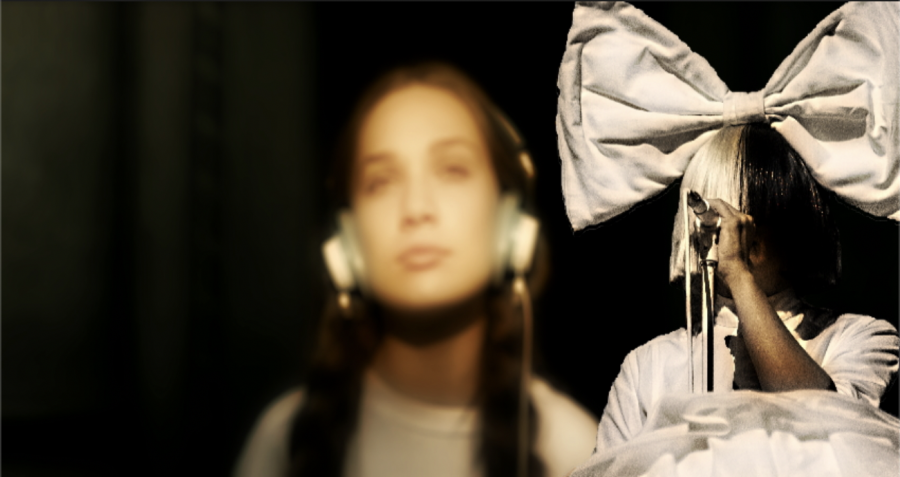Opinion and Analysis: Sia’s Selfishness Clouds Ethics in “Music”
Pre-article Disclaimer: There’s an ongoing debate about whether identity-first language or person-first language should be used when referring to Autistic people. Since identity-first language is more prevalent within the Autistic community, I’ve opted to use it throughout this article. I encourage you to read this article from the Autistic Self Advocacy Network for more information. Thank you.
Amid the recent “Scammys” controversy, a new token of injustice has once again permeated the entertainment industry at the Golden Globe Awards, or what I now nickname the Gilded Globe Awards for its “culture of corruption” despite its purported luster. With the nomination of pop singer Sia’s musical drama film Music, the Hollywood Foreign Press Association has placed an inauthentic and pernicious representation of autism in the limelight.
According to Charlotte Gush, an Autistic writer, Music instantly became problematic when Sia conflated her interactions with an Autistic boy with her writing of the movie’s eponymous character. Since autism runs on a spectrum, Sia’s experience with one Autistic boy cannot possibly provide a holistic perception of the Autistic community.
One of Sia’s most egregious errors, however, was her consultation of the organization Autism Speaks. Monopolizing the space for autism advocacy groups since 2005, Autism Speaks has released a harmful myriad of “resources” that claim that autism “works faster than pediatric AIDS, cancer, and diabetes combined.” Suzanne Wright, a late co-founder of Autism Speaks, also compared children being diagnosed with autism to children going missing. Sia’s inability to see past this ostensible support of Autistic people within Autism Speaks is unacceptable, and her negligence to be a true ally to the Autistic community (which would entail avoiding Autism Speaks altogether) suggests that maybe she shouldn’t have created this feature film in the first place.
Sia’s role at the helm of this film was further brought into question after accounts of her nepotistic casting surfaced. Sia openly admitted that her casting decision of her goddaughter Maddie Ziegler—who is not Autistic—as the title character Music is “nepotism because I can’t do a project without her. I don’t want to. I wouldn’t make art if it didn’t include her.” Sia’s unflinching confession of her wrongdoing conveys that perhaps Music is, at its core, not about representation of the Autistic community—it’s first and foremost about boosting Sia’s own ego as an artist. Alternatively, Music is a thinly disguised attempt by a celebrity to characterize herself as selfless, even when she’s cognizant of her misdeeds.
Ziegler, who was only 14 at the time of the film’s production, cried on set as Sia coerced her into an offensive role she didn’t want to play. Ziegler’s portrayal becomes even more offensive after Sia disclosed in a now-deleted tweet that she “actually tried working a a [sic] beautiful young girl non verbal [sic] on the spectrum and she found it unpleasant and stressful.” And while it’s unclear if Sia made any attempts to make her set safer and less stimulating for the Autistic actress, her resolve to cast Ziegler instead of another Autistic actress isn’t just nepotism–it’s plain ableism (which Oxford Languages defines as “discrimination in favor of able-bodied people”).
When clips of the movie began to surface on social media mid-February, another ism was introduced within this fiasco: racism. Since Ziegler’s character is Black and white, Sia thought it was somehow appropriate to let her don darker makeup and wear a wig mimicking Black hair. Sia’s failure to modify this misstep during the film’s production reinforces how Music was a largely self-serving passion project. Sia also failed when casting the protagonist’s half-sister. In a webinar on January 30, Sia revealed that she cast Kate Hudson in a role that was set for a Black actress to leverage the success of her movie (since her team thought having Leslie Odom Jr. and a Black actress in lead roles would diminish Music’s popularity). Sia’s sole concern about her movie’s success reiterates that Music may very well be a vanity project that contributed to the cesspools of ableism, nepotism, and racism within the film industry.
Sia recently apologized, promised to remove scenes including physical restraints of Ziegler’s character from Music (turns out she didn’t), and surprisingly deleted her Twitter account—but is she truly sorry? Why has she remained so complacent and treated her confessions to her ableism, nepotism, and racism with levity? And how on earth did Music get nominated for “Best Musical or Comedy” and “Best Actress in a Musical or Comedy” (Kate Hudson) at the “Gilded Globe Awards”? Ultimately, we may never know… but we will always know how Sia smugly misrepresented the Autistic community and yielded to various inequities to fulfill her own agenda.


